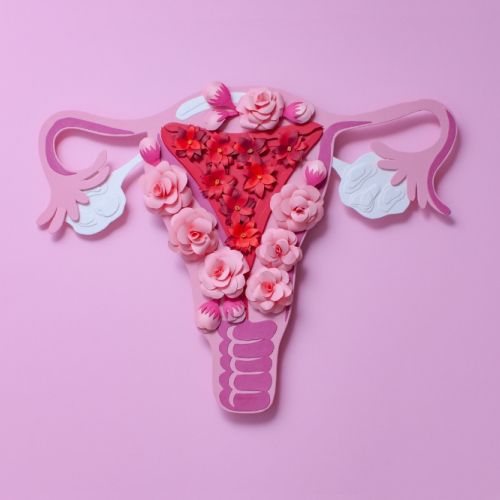At What Age Does Fertility Decline?

The average age of planning to get pregnant is increasing. Fertility is at its peak during a time when many women aren’t ready to think about having a baby. Different women have different reasons for wanting to postpone pregnancy such as being focused on their careers or their education or feeling like they haven’t found their life partner. Many women don’t realize that the passage of time can make it more difficult to get pregnant. At what age does fertility decline?
Peak Fertility
Fertility is the ability to get pregnant, and it’s at its peak in your late teens through your twenties. Fertility starts to decline by the age of 30 and by the time you’re 35, fertility is rapidly decreasing. The reason this happens is because women are born with all the eggs they’ll have during their lifetime. One or more eggs is lost every month during menstruation.
Women who are interested in getting pregnant at a later age such as 40 to 45 have a much lower supply of eggs than they started with, and the quality of the remaining eggs has declined. By the mid-40s, many of the eggs that remain have chromosomal abnormalities. Because of these abnormalities, the eggs may not allow fertilization and if a woman does conceive, she’s at high risk of miscarriage.
Declining Egg Quality
As you get older, your remaining number of eggs continues to decrease because losing eggs is part of the aging process. The rate that eggs decline varies from one woman to another. Age isn’t the only reason this happens. Both genetics and environmental factors can affect this rate of decline.
Throughout a woman’s life, medical conditions and lifestyle choices may have an impact on egg quality. Exposure to cigarette smoke and environmental toxins can damage eggs and cause them to decline rapidly. Heavy alcohol consumption and obesity may also affect egg quality.
Men and Fertility
You may have heard of men who father children well into old age, but that’s not common. Men aren’t born with all their sperm. Instead they continue to produce fresh sperm each day. That doesn’t mean that a man’s age has no impact on pregnancy, because men who are over the age of 40 to 45 may produce fewer healthy sperm than a younger man. Men over the age of 40 may have a harder time successfully fathering a child that they would at a younger age.
Your Biological Clock
As you age, so do your ovaries and your eggs. Women who want to postpone pregnancy should recognize that their best chance of having a healthy pregnancy is before the age of 35. If you want to postpone pregnancy later than that, consider freezing your eggs. By doing this, your eggs stay as healthy as possible rather than continuing to age and may be able to be used later when you’re ready to try to have a baby.
Get in touch with the experts at the Center for Reproductive Health to learn more about how aging contributes to declining fertility and to find out how to give yourself the best chance of having a healthy pregnancy.
Eliran Mor, MD
Reproductive Endocrinologist located in Encino, Valencia & West Hollywood, CA
FAQ
What does a reproductive endocrinologist and infertility specialist do?
Reproductive endocrinology and Infertility is a sub-specialty of Obstetrics and Gynecology. In addition to managing medical and surgical treatment of disorders of the female reproductive tract, reproductive endocrinologist and infertility (REI) specialists undergo additional years of training to provide fertility treatments using assisted reproductive technology (ART) such as in vitro fertilization.
Reproductive endocrinologists receive board certification by the American Board of Obstetrics and Gynecology in both Obstetrics and Gynecology and Reproductive Endocrinology and Infertility.
When should I see an REI specialist?
In general, patients should consider consulting with an REI specialist after one year of trying unsuccessfully to achieve pregnancy. The chance of conceiving every month is around 20%, therefore after a full year of trying approximately 15% of couples will still not have achieved a pregnancy.
However, if a woman is over the age of 35 it would be reasonable to see a fertility specialist earlier, typically after 6 months of trying.
Other candidates to seek earlier treatment are women who have irregular menses, endometriosis, fibroids, polycystic ovary syndrome (PCOS), women who have had 2 or more miscarriages, or problems with the fallopian tubes (prior ectopic pregnancy).
What are the reasons we are having trouble conceiving?
Approximately 1/3 of the time cause for infertility is a female factor, 1/3 of the time a male factor, and the remaining 1/3 a couples’ factor.
At CCRH, we emphasize the importance of establishing a correct diagnosis. Both partners undergo a comprehensive evaluation including a medical history and physical exam.
Furthremore, the woman’s ovarian reserve is assessed with a pelvic ultrasound and a hormonal profile. A hysterosalpingogram (HSG) will confirm fallopian tube patency and the uterine cavity is free of intracavitary lesions. A semen analysis is also obtained to evaluate for concentration, motility, and morphology of the sperm.
Additional work up is then individualized to direct the best possible treatment option for each couple.
What is IVF? What is the process like?
In vitro fertilization (IVF) is the process that involves fertilization of an egg outside of a woman’s body.
The process starts with fertility drugs prescribed to help stimulate egg development. In your natural cycle, your body is only able to grow one dominant egg, but with stimulation medication we can recruit multiple eggs to continue to grow. After about 8-10 days of stimulation, the eggs are surgically retrieved and then fertilized with sperm in a specialized laboratory. Fertilized eggs are then cultured under a strictly controlled environment within specialized incubators in the IVF laboratory for 3-5 days while they develop as embryos. Finally, embryos (or an embryo) are transferred into the uterine cavity for implantation.
Should I have IVF?
Before deciding if IVF is the right choice, it’s important to sit down with an REI specialist to discuss available treatment options. For some people, other methods such as fertility drugs, intrauterine insemination (IUI) may be the best first choice treatment. At CCRH, we believe each individual couple is unique and not everyone needs IVF.
Is the IVF procedure painful?
While not painful, the fertility medications may some side effects including headaches, hot flashes, mood swings, and bloating. The injection sites may also bruise.
Will IVF guarantee a baby?
Unfortunately, no. Many people think once they start IVF it’s a matter of time that they will be pregnant and have a baby. But according to national statistics per the Society of Assisted Reproduction (SART), on average 40% of assisted reproduction cycles achieve live births in women under age 35. The chances of success then continue to decrease with advancing age.
At CCRH, we employ only evidence-based interventions to ensure patient safety and optimal outcome. While we cannot guarantee a baby, we guarantee that you will receive the best, most advanced, personalized care to help you maximize your chance of a baby.
What is the success rate for IVF?
The average IVF success rate (success measured in live birth rate) using one’s own eggs begins to drop around age 35 and then rapidly after age 40. This is due to the decline in egg quantity and egg quality as a woman ages.
Our clinic’s success rate consistently beats the national average year after year.
Do insurance plans cover infertility treatment? How much does IVF cost?
Individual insurance plans often do not have any coverage for infertility treatments. If you have a group plan, you can call members services to see if they have coverage for infertility (including consultation/workup and IVF).
After your consultation with our REI specialist, one of our dedicated account managers with sit with you to go over the cost of treatment.




